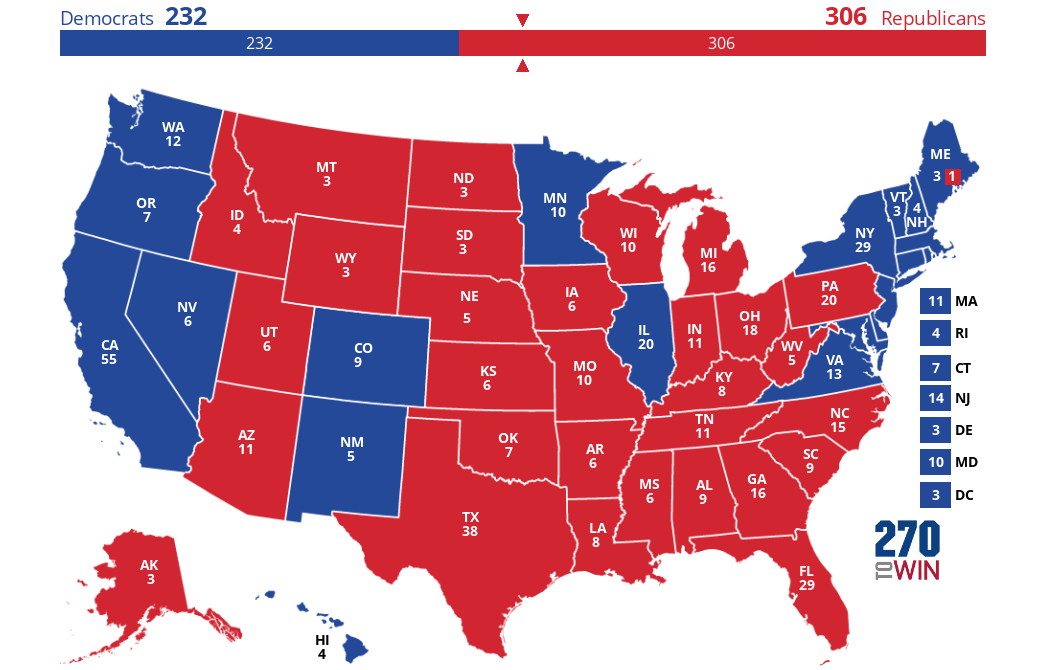What happens when a constitutional provision that has existed since the founding of the present American government works as designed? The losers demand an end to it. Outgoing Democratic Senator Barbara Boxer has introduced a bill in the lame-duck session to put an end to the Electoral College, about as threadbare a publicity stunt as, well … her reliance on the Electoral College in another 2004 post-election stunt:
It’s been an extremely divisive election, and a lot of people this year are having trouble accepting the outcome. Some — like California Sen. Barbara Boxer — have argued in the wake of the results that it’s time to get rid of the current system altogether.
The Democrat introduced legislation Tuesday that would abolish the Electoral College and use the popular vote instead to determine the presidency. She has public opinion behind her. According to a 2013 Gallup poll, 63 percent of Americans would get rid of the electoral college.
“This is the only office in the land where you can get more votes and still lose the presidency,” Boxer said in a statement. “The Electoral College is an outdated, undemocratic system that does not reflect our modern society, and it needs to change immediately.”
This is a lame PR stunt for a couple of reasons to which we’ll return in a moment, but it’s also a stunningly hypocritical stance for Barbara Boxer. She infamously challenged Ohio’s slate of electors in January 2005 in an attempt to block (or at least stall) George W. Bush’s formal re-election process. Bush had won the popular vote by over 3 million over John Kerry, but needed Ohio to get over the 270 electors needed to complete his victory in the Electoral College. Boxer claimed that voting irregularities had taken place in Ohio, most of which turned out to be the same kind of “fake news” nonsense that the media has suddenly discovered twelve years later as a threat to the Republic. Boxer wasn’t interested in relying on the popular vote in that case — she explicitly relied on the Electoral College for her challenge.
It’s also lame because this Congress has no incentive to advance that agenda anyway. Granted, the Senate could pass the bill if it wanted to do so, but they will be more occupied with an upcoming budget deadline than Boxer’s grandiosity in service to a narrow number of states who would back this constitutional amendment. She would need a two-thirds supermajority in both the Senate and the House just to send it off to the states for ratification. The odds of that happening are somewhere between slim and none, and don’t take slim even with the spread.
But let’s say Boxer can get two-thirds of the Senate to forget that the US is a constitutional republic rather than a pure democracy. Which of these states will jump on board for a two-thirds ratification that allows high-population states like California, New York, and Massachusetts choose presidents in every cycle?
Try to pick 38 states that want to give up any influence they have as political entities in order to sign up for domination by the coastal elites. Democrats only won 20 states last week in the Electoral College, and in Congressional and state legislative races fewer than that. Florida and Texas might throw in theoretically, given their large populations, but that still leaves 16 more states to woo.
The truth is that the Electoral College worked exactly as designed. Hillary Clinton leads in the popular vote, which is still being tabulated, but by just over 1.3 million votes. David Wasserman’s Cook Report spreadsheet shows Hillary with a 3.2 million vote advantage in California, 1.5 million in New York, and nearly a million in Massachusetts as of this morning. That’s over five and a half million votes from three states, with the results from the other 47 states showing Hillary trailing by over four million votes. Requiring a state-by-state tabulation forces candidates to appeal to a broader range of voters and to acquire more of a consensus — and considering what happened in the House, Senate, and state legislative races, it’s difficult to argue that the GOP win doesn’t reflect the true electoral consensus in the nation.
In truth, the problem facing the nation isn’t the Electoral College as some archaic remnant of federalism — it’s the fact that Washington has too much power and federalism is the approach to which we should return. In a properly calibrated system, most of the power that now resides in the White House would belong to the states, and the presidency would matter for only those issues of explicit interstate interest, foreign policy, and national defense. Not only would that make presidential elections less fraught with uncertainty, it would produce candidates with specific appeal in these areas rather than having to choose which authoritarian gets to wield power on behalf of which favored interests.


 Click the map to create your own at
Click the map to create your own at 





Join the conversation as a VIP Member